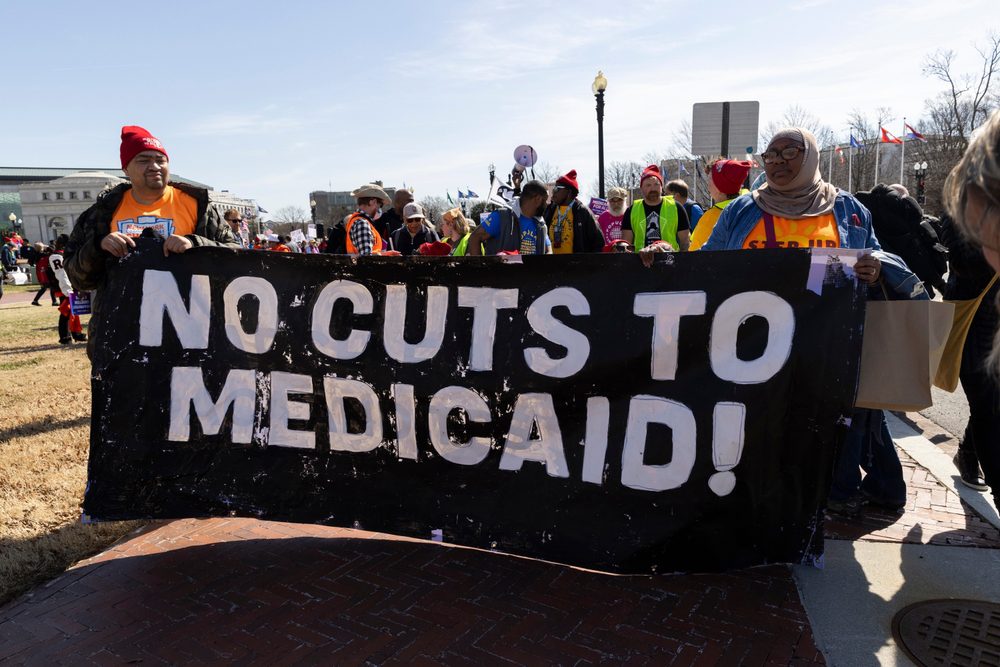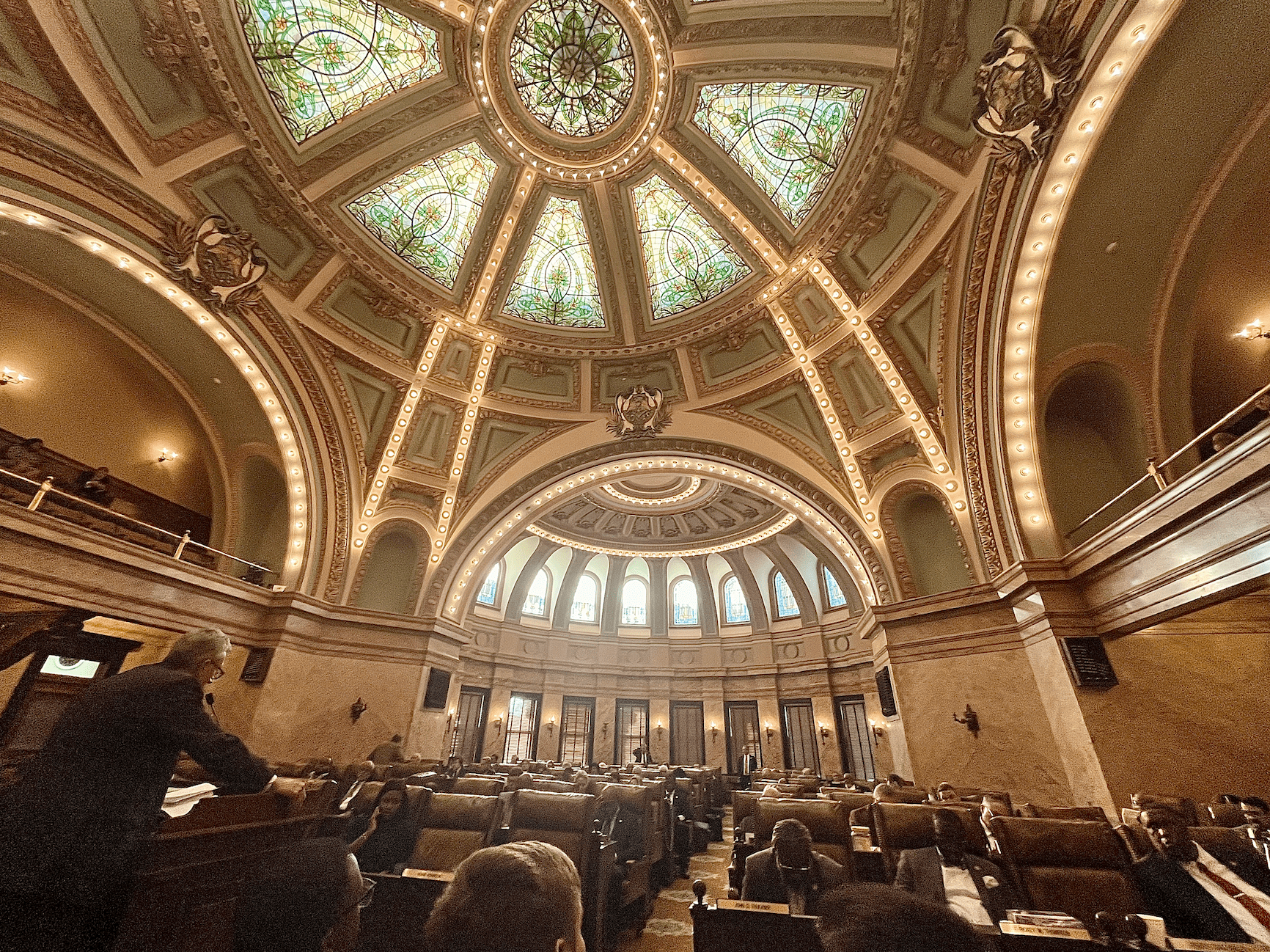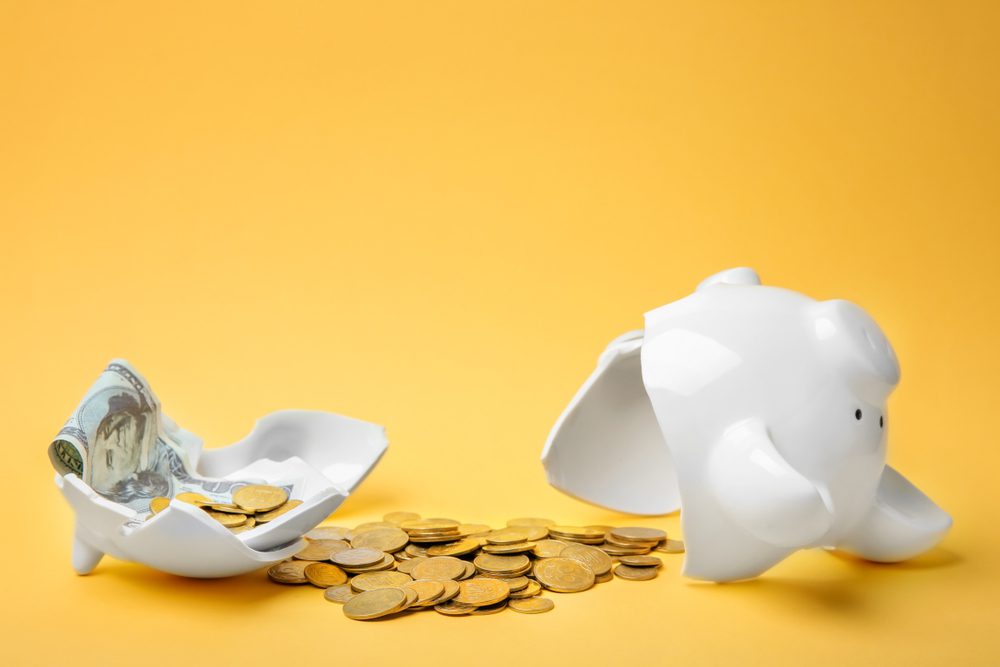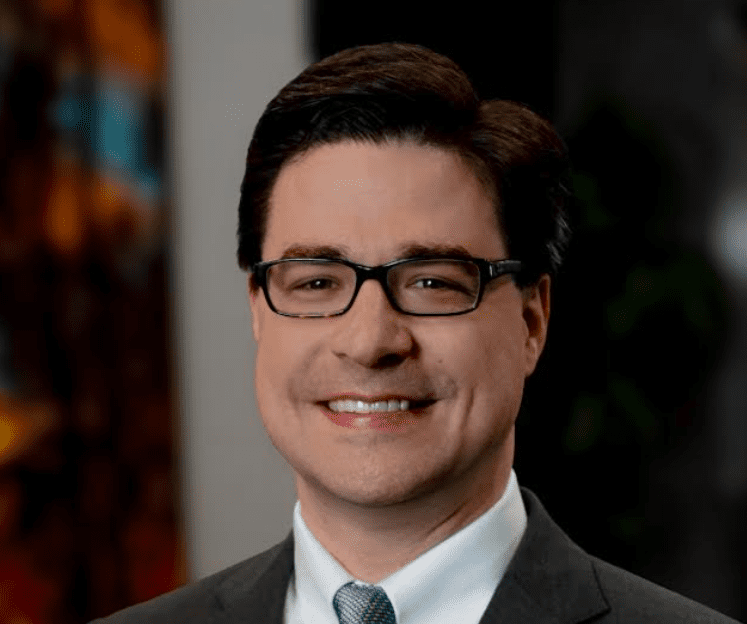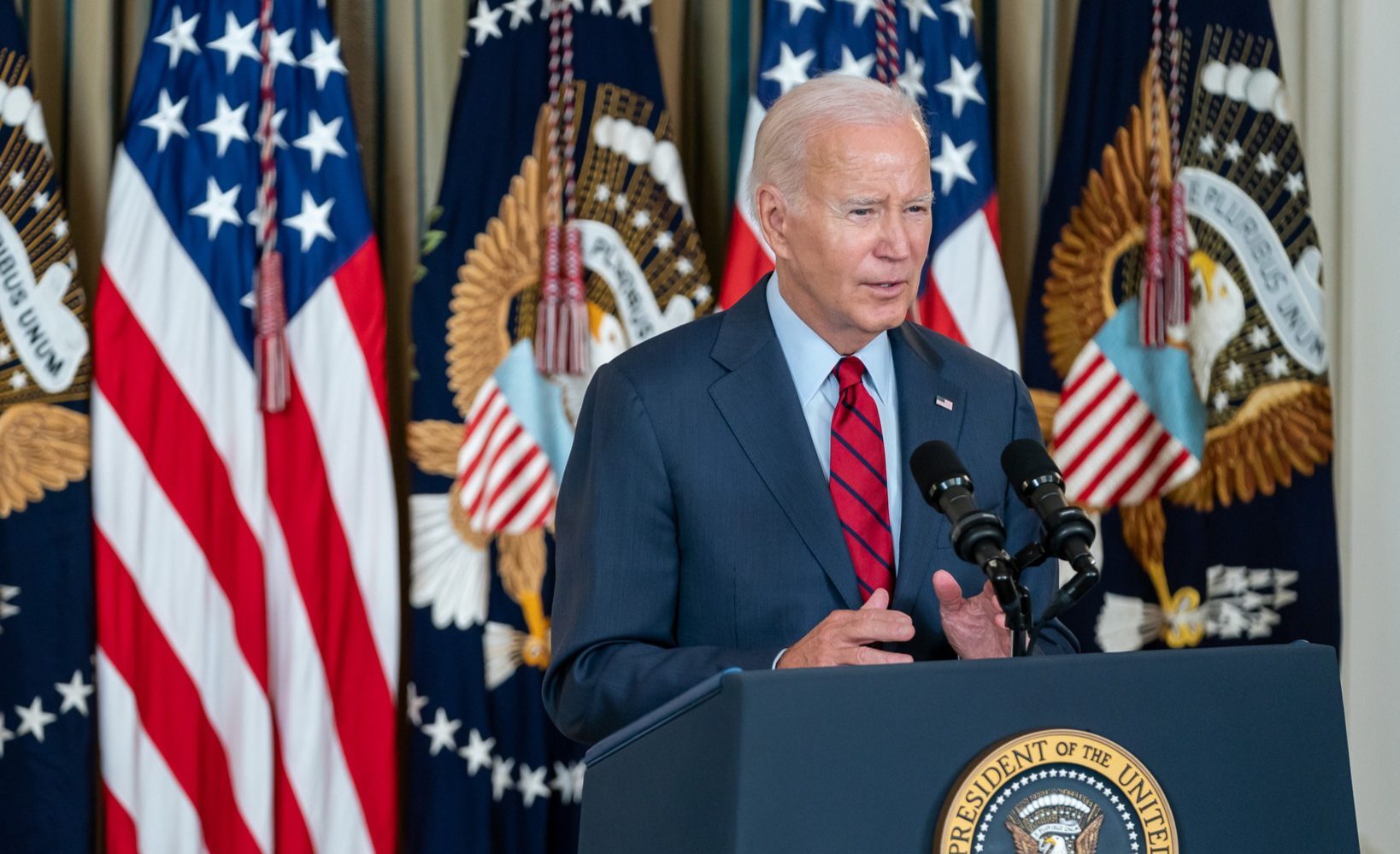
(Photo: The White House, Wikicommons)
- More than six in 10 Americans disapprove of Biden’s handling of the economy, while 45% say they are financially worse off today than they were a year ago.
“Our economy is literally the envy of the world,” President Biden boasted in his recent State of the Union address. “Fifteen million new jobs in just three years. A record. Unemployment at 50-year lows … Wages keep going up, inflation keeps coming down.”
These facts aren’t wrong – the United States economy has made a remarkable comeback from the pits of the pandemic – but this development hasn’t really sunk in yet with most voters. More than six in 10 Americans disapprove of Biden’s handling of the economy, while 45% say they are financially worse off today than they were a year ago.
Former President Donald Trump holds a 22-point advantage over Biden on the question of which candidate would do a better job handling the economy. When this question was asked in October 2020 – a month before Biden’s victory – Trump held only a 7-point edge. The economy could be a deciding factor for many Americans: A recent Fox News survey shows 89% of voters say the economy is either “extremely” (61%) or “very” (28%) important in deciding their vote for president.
“Life is just more of a squeeze than it was from what [voters] remember the early years of the Trump presidency,” said CNN senior political analyst Ron Brownstein. “The nightmare phrase that we hear in focus groups all the time is, ‘I don’t like Donald Trump, I don’t like what he says, I think he’s a racist, but if I’m being honest, I had more money in my pocket at the end of the week when he was president.’”
Biden must turn around the narrative if he hopes to win the election. One Democratic senator is leading the charge.
Sen. Bob Casey of Pennsylvania, who is up for reelection in November, hosted a roundtable discussion Tuesday with Federal Trade Commission Chair Lina M. Khan. The two were discussing their plans to combat big corporations’ decisions to excessively increase the price of goods. They call it “greedflation.”
Greedflation is slang for what the economist Isabella Weber dubbed “seller’s inflation,” or the theory that price gouging exacerbates an already inflationary situation to increase corporate profit margins. Weber first floated the idea in an opinion column in The Guardian in 2021, writing that one reason inflation was so high at the time – 7% by the year’s end – was because corporations were enjoying an “explosion in profits” as they saw an opportunity to boost their prices more than necessary under the cover of the very real supply-and-demand problems caused by the COVID-19 pandemic.
Weber contended that businesses were raising prices in part because they needed to if they hoped to remain profitable, but also because they could, at the expense of consumers. Her postulate was initially dismissed as a conspiracy theory, but Casey and the FTC are dedicated to bringing Weber’s “greedflation” hypothesis to the attention of Americans.
“It’s an abuse,” Casey said at the roundtable. “It’s a perversion of capitalism, that’s what it is.”
Casey’s home state of Pennsylvania is a strategically good starting place to make this case. The swing state must remain blue if Democrats hope to keep the White House and their Senate majority.
Inflation caught the attention of Americans when it hit a 40-year high of 9.1% in 2022. Blaming greedflation for this catapult might work as a powerful argument to deflect the anger of the average American from Biden and his spending – including a $1.9 trillion pandemic relief package – to corporate bigwigs and their avarice.
Many economists call greedflation bunk. They point to the many factors that have played a role in rising global inflation since 2020, including pandemic-induced supply-chain shortages, the war in Ukraine creating congestion in energy and wheat exports, and the rising cost of labor. If none of these issues give penny-pinchers a satisfying someone to blame, the Biden administration’s policy decisions may also have contributed to rising inflation. Look there, not at corporations, they say.
“This is really a matter of politicians trying to shift blame for policy-induced inflation,” said John Zhang, director of the Penn Wharton China Center at the University of Pennsylvania. “And obviously if I were in Biden’s position, that probably is a button I’m going to push, too. It seems to be believable.”
Yet Casey’s argument finds backing from a handful of studies, including a report from the Economic Policy Institute, a liberal and pro-union group. Its researchers identified three major components of price increases for goods and services: labor cost, non-labor cost (these would be factors such as supply-chain disruptions), and corporate profit.
From 1979-2019, labor accounted for an average of 61.8% of price increases, non-labor was responsible for 26.8%, and corporate profits were a light 11.4%. From the second quarter of 2020 to the end of 2021, EPI researchers found that labor accounted for a mere 7.9%, non-labor made up 38.3%, and corporate profits were responsible for 53.9% of price increases for goods and services.
If this data is accurate, it means that during the pandemic, corporations selling goods and services increased their profit margin five-fold. While some prices have come down, the pandemic seems to have acted as a market reset: It offered a once-in-a-generation opportunity for companies to raise their prices to a new normal and never look back.
Albert Edwards of Societe Generale, a French financial services company, called the corporate profit-taking “unprecedented” and “astonishing” in a takedown of greedflation last year. He warned that popular unhappiness at companies’ “super-normal profit margins” could invite price controls not seen for decades.
Casey is one politician calling for such price controls. His Price Gouging Prevention Act would protect American families from greedflation by creating a “new federal ban on grossly excessive price increases, and authoriz[ing] the Federal Trade Commission (FTC) and state attorneys general to enforce the ban.”
In the same State of the Union address where Biden lauded his economic accomplishments, he promised to crack down on price gouging and “deceptive pricing.” “Pass Bobby Casey’s bill and stop this,” Biden said. “I really mean it.”
It seems Democrats may not have to work too hard to convince Americans that greedflation is real. A recent NPR/PBS/Marist poll shows 72% of Americans agree that “corporate greed is a major cause of inflation,” though broken down by party, almost all (89%) of Democrats agree with the sentiment, while far fewer (57%) of Republicans agree.
Unfortunately for Casey and Biden, getting voters to blame greedflation for their empty pockets might not be enough to remove the target from their own backs. Voters “are still feeling the effects of inflation,” said Christopher Borick, director of the Muhlenberg College Institute of Public Opinion in Allentown. “Their anger could be placed in multiple settings.”
#####
